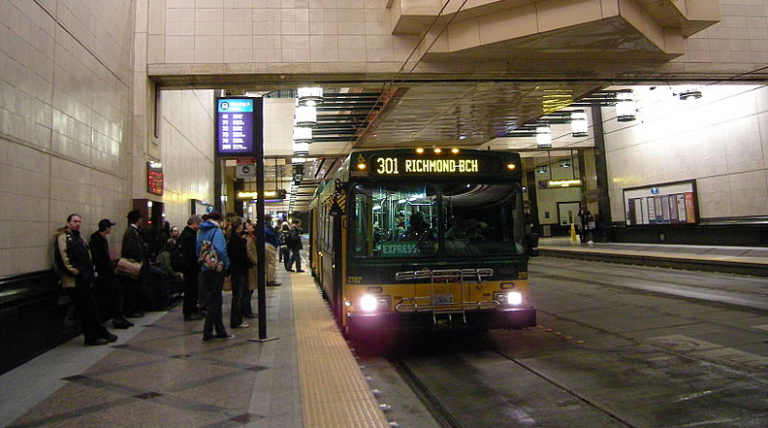Published on March 15, 2024

Reported by Jen Moss for the University of Washington’ College of Built Environments
King County Metro (Metro), which serves a daily average of over 250,000 riders across more than 203 square miles of the county, has an emissions challenge. Their zero-carbon emissions target, set by the King County Council, must be met by 2035. This will require electrifying their entire bus fleet, a costly venture. While Metro currently employs 51 battery-electric buses (BEBs) and a host of electric trolleys, there are approximately 901 buses in daily service.
“King County Metro has a rare opportunity where leaders who recognize that climate change is a real crisis are working with the community to drive change,” said Huoi Trieu, Metro’s Zero Emissions Director. “We’ve been in the clean, sustainable transit space for a long time, and there’s the political will, public support, and staff expertise to help us meet our goals.”
While Metro has a target date and strategic climate action plan, they needed more support for this enormous undertaking. First, with the deadline fast approaching, how could they speed up the process? Second, what funding mechanisms would be best for this billion-dollar investment? Third, could a private partner provide the technical expertise to ensure uninterrupted service during and after bus electrification?
To answer their questions, they turned to Hyun Woo “Chris” Lee, A PD Koon Endowed Associate Professor in CBE’s Department of Construction Management.
Continue reading here.
Hyun Woo “Chris” Lee, A PD Koon Endowed Associate Professor in CBE’s Department of Construction Management, is helping Seattle's Metro to electrify buses and meet environmental goals.